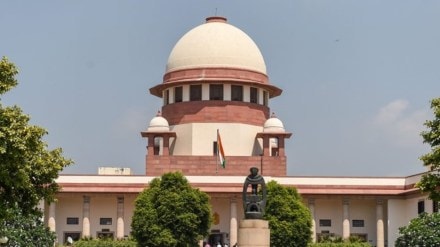The conduct of the presiding officer in the recent mayoral election in Chandigarh casts a cloud on the fundamental contract between the State and citizens on free and fair elections. After viewing alleged defacing of ballots by Anil Masih, a BJP councillor who presided over the poll, the Supreme Court’s oral remarks were stinging—the apex court termed it “a murder of democracy”.
The BJP was declared the winner after eight votes by Congress-AAP councillors were junked as “invalid” by Masih. Such mockery of electoral democracy, sadly, hasn’t happened for the first time. Recall the panchayat elections in Bengal in 2018 and 2023. Opposition parties in the state had alleged rigging, ballot looting, etc, by the ruling party.
A mayoral or a panchayat election may be conducted very differently from an Assembly or a parliamentary poll, but the erosion of faith at the grassroot level will stoke the electorate’s distrust of the latter. The ruling party at the Centre must, therefore, act quickly to address any malfeasance by the people representing it, even in local elections. The general elections are due in a few months.
While the party may be confident enough of its good work to say it will win 370 seats by itself and 400 as a coalition, it can ill-afford to let such a victory be overshadowed by any doubt over fairly-conducted elections. More so, when the opposition parties have, time and again, raised the bogey of manipulation of electronic voting machines (EVMs). The image of India’s electoral democracy can’t afford such assaults.
That said, free and fair elections are not the responsibility of political parties alone. The Chandigarh episode exposes the reluctance of the judiciary to take a fair stand on the issue. The Punjab and Haryana High Court must bear some blame for how things unfolded. The Congress party and AAP had approached the court on January 17, fearing tampering and malfeasance in the election originally scheduled to happen on January 18. They had requested a court-appointed supervisor.
The election was delayed by the presiding officer, but when the HC ordered that the polls be held on January 30, it refused to appoint a supervisor. There was blatant violation of the regulations—though the rule calls for the counting of the votes by the presiding officer along with designated members, it was only the presiding officer who counted these.
Yet, when these violations were pointed out to the HC on January 31, it refused to grant interim relief by staying the election. Such hesitation on carrying out its mandate—or worse, abdication of the same—injures not just trust in the elections but also in legal remedy.
Loss of faith in the fairness of polls would be catastrophic for a democracy like India’s, especially when it is as prone to polarisation as now. The SC has rightly termed the “purity of the election process” as the “great stabilising force in the country”.
Trust in the electoral process has been built across the decades, with the Election Commission, the political parties, the executive and the judiciary, each playing their role in bolstering it. Indeed, a Freedom House report gives full marks to India’s electoral process even as other factors such as full political rights and electoral opportunities for all the sections of the population didn’t have such a stellar showing. That trust needs to be protected.
